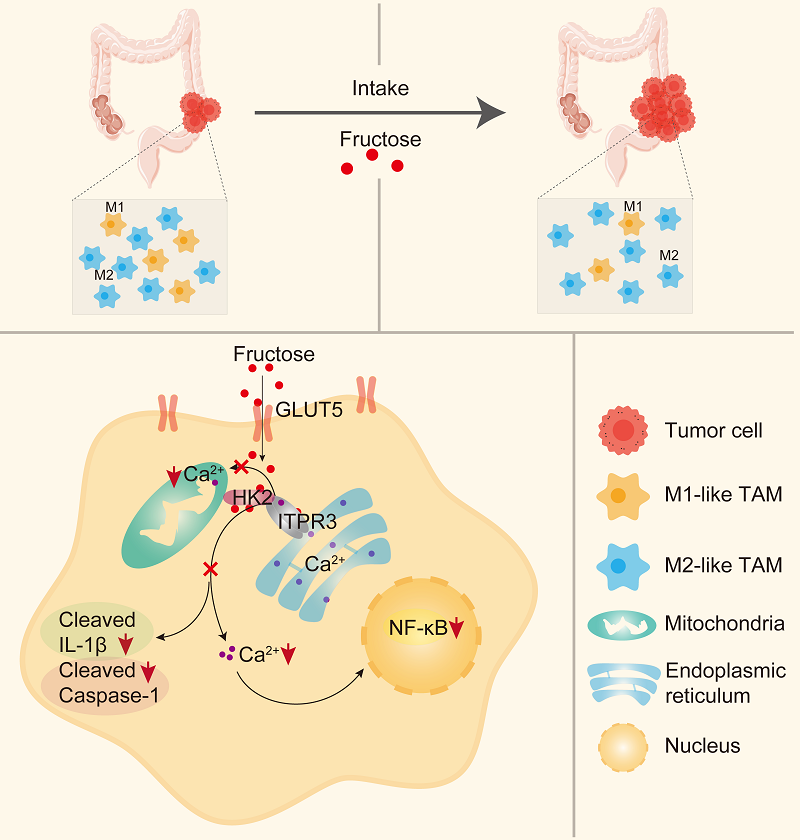Scientists Uncover New Mechanism by Which Fructose Promotes Colorectal Cancer Development
Epidemiological studies have shown that excessive fructose intake increases the risk of colorectal cancer; however, the role and mechanism of fructose in colorectal cancer progression have remained unknown.
Recently, a collaborative team from Institute of Biophysics, Chinese Academy of Sciences, Wenzhou Medical University, and the Dalian Institute of Chemical Physics, Chinese Academy of Sciences discovered that fructose suppresses the polarization of M1-like tumor-associated macrophages (M1-like TAMs), thereby promoting the onset and progression of colorectal cancer. This finding reveals a new functional mechanism of fructose.
The study was published on October 28, 2024, in Cell Metabolism.
The researchers found that fructose's inhibition of macrophage polarization is not dependent on its downstream metabolites but rather is mediated by directly promoting the interaction between hexokinase 2 (HK2) and inositol 1,4,5-trisphosphate receptor type 3 (ITPR3). Fructose itself acts as a signaling molecule regulating macrophage polarization.
Using various mouse models of colorectal cancer, the researchers demonstrated that a high-fructose diet promotes the occurrence and growth of colorectal cancer in mice by reducing the proportion of macrophages, particularly M1-like TAMs, in the tumor microenvironment.
Knocking out the fructose-specific transporter GLUT5 in myeloid cells was shown to reverse the inhibitory effect of fructose on M1-like TAM polarization and to suppress the growth of primary colorectal tumors.
Single-cell transcriptomic analysis of colorectal cancer patient tumors revealed that M1-like TAM-related markers are significantly lower in macrophage subgroups with high GLUT5 expression compared to those with low GLUT5 expression.
This study unveils a novel function of fructose as a signaling molecule that promotes colorectal cancer development and growth by inhibiting M1-like TAM polarization, expanding the understanding of fructose's role in cellular activity regulation.

Fig. Mechanism Diagram of High-Fructose Diet Promoting Colorectal Cancer Progression
(Image by BU Pengcheng's group)
Article link: https://www.cell.com/cell-metabolism/fulltext/S1550-4131(24)00398-X
Contact: BU Pengcheng
Institute of Biophysics, Chinese Academy of Sciences
Beijing 100101, China
Email: bupc@ibp.ac.cn
(Reported by Prof. BU Pengcheng's group)

